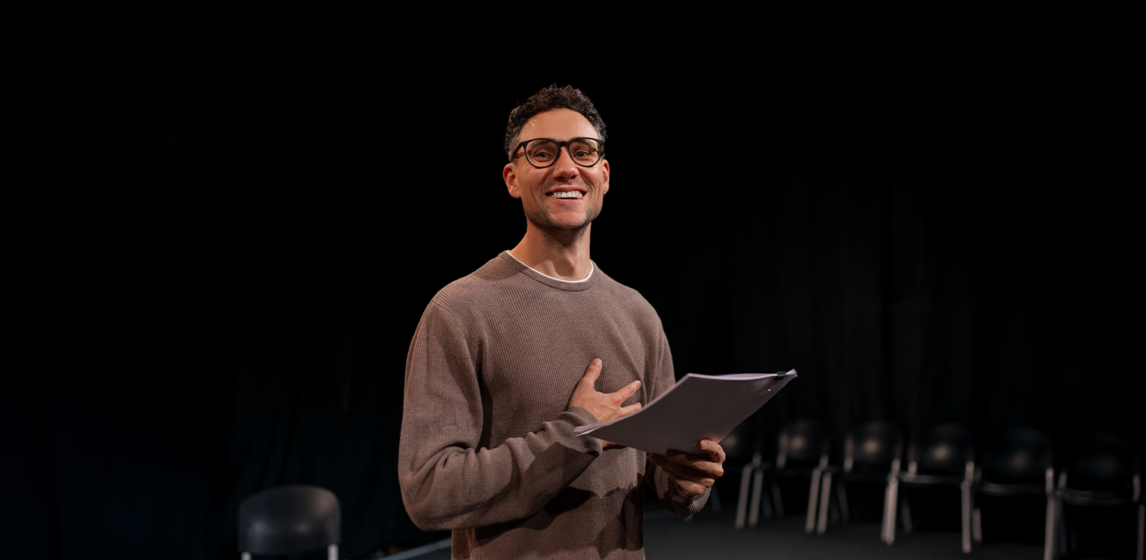A tale of two poverties
Engaging students across the resource divide
When most of us in the United States think about poverty, we think “lack of resources”. We tend to conjure up images of people who are destitute or hungry and live in either public housing or the developing world. Maybe we have a general sense that geography and birth can be a cruel combination. The notion that perhaps we could seriously engage poverty in every facet of our ministry, or even that we suffer from it, rarely crosses our minds.
Maybe we look at our youth ministry paychecks once in a while and longingly yearn to have just one year in which we made enough to actually go on a real vacation, but for the most part we have adequate shelter, plenty of food options, and perks that make any serious attempt to consider ourselves impoverished almost funny. Other than a yearly famine with my teens and a spring break mission trip, poverty as a reality just doesn’t hit my radar.
At this point I should note that I live in Irvine, California—the central city in America’s only “master-planned county”. Orange County, or “The OC” as tourists call it, in many ways is a case study in what it means to cater to the aspirations that have fed the massive growth of suburbia. In my city almost every neighborhood has a green belt, park, swimming pool, ample bike trails, and many have their own private lake. Moving here from the southeastern United States I found it awkward. I had never lived in a city in which everybody’s house color complemented all the others on the block, the whole city’s grass was always the same length, and all the trash cans matched. Most of my neighbors work for bio-mechanical or IT companies and drive cars that cost more than most youth pastors’ salaries.
So I have to admit that even though I have been exposed to poverty, it is challenging to think of it as a force that shapes my life. By design, my neighborhood shields me from people who fit my understanding of someone living in poverty.
A new understanding of poverty
As mentioned earlier, many of us think of poverty as a lack of something. People who lack life necessities, hope, power or political access are generally considered to be affected by poverty. While this is not necessarily wrong, authors such as Bryant Myers and Jayakumar Christian remind us that poverty is much more than a lack of resources. Myers suggests that the West often suffers from a sort of mirror image of physical-need poverty in which we have too much. [[Bryant Myers, Walking with the Poor: Principles and Practices of Transformational Development (Maryknoll, NY: Orbis,1999), 88-90.]] The fact that I will probably die from clogged arteries due to too much fat and cholesterol in my diet (the opposite of malnutrition) confirms his thought. My poverty is harder to recognize and easier to overlook because I do not realize how desperately I need God. Jayakumar Christian also notes that in the West and in other places shaped by urbanization there is a poverty of relationships that isolates us and kills our soul and sense of community. [[Jayakumar Christian, God of the Empty Handed: Poverty, Power and the Kingdom of God (Monrovia, CA: MARC, 1999).]]
Myers, the former Vice President of International Program Strategy at World Vision and currently an instructor in Fuller Seminary’s School of Intercultural Studies, offers in Walking with the Poor that in a world marked by the fall, anything that mars the identity of God in us or others or does not promote life can be understood to be poverty. [[Bryant Myers, Walking with the Poor,86-88.]] He insists that poverty is primarily spiritual and relational and devastates the lives of both the rich and the poor. [[Bryant Myers, Walking with the Poor,86-88.]] Meyers sets up a framework in which poverty is understood as the holistic systems that cripple our relationship with God, our communities, our planet and those we understand as “other”. [[Bryant Myers, Walking with the Poor, 87. ]]
Once I begin to understand that not only am I not immune to poverty but that I am directly affected by it, I have to come to terms with a new reality. I now share a plight with the people I used to call “poor”, for I am poor in spirit and relationship. What I thought was limited to the billion or so people on my planet who live on less than one US dollar a day is now expanded to include all of us not fully living in the completeness of God’s holistic design for creation. It is no longer “them”, “you”, and “me”, but “us” in solidarity, trying to recapture God’s full plan. With this new way of thinking I am able to help my students move away from attempting to fix the poor and toward becoming people who serve others in order to promote Christ’s whole range of healthy relationships for everyone on the planet. That means that even the kids who live in gated communities and get dropped off in Lexus SUVs are on a faith journey that includes working to alleviate their own poverty along with that of fellow sufferers all over the world.
Is there a Biblical model of poverty?
I am convinced that when we reformulate poverty this way, there are few, if any, resources more complete for engaging poverty than the Bible. In it we find that the kingdom God desires is one marked by relationships that bring out the fullness of each of us in the type of community that promotes life. God seems to make it quite clear that anything that gets in the way of that dream is in opposition to God and needs to be confronted and worked against.
The Bible paints a picture of humanity living in perfect relationship with the abundant planet, with each other and with God. The fall marks the entrance of death into the human condition and opens the door to poverty in its myriad forms. No longer would our life be marked by our pure and innocent relationship with each other and God, but by constant toil in order to coax food from the earth as well as relationships marked by self-serving interest and abased commitments.
However, God evidently hates poverty more than we hate living with it. God dedicates what seemingly is all of heaven’s resources so that we can combat poverty. Interestingly, God doesn’t just make poverty go away, but models for us the commitments, attitudes and actions we need in order to free ourselves and our communities from poverty.
In an act that speaks volumes about God’s heart, God begins by picking a people—not just any people but a slave people—living under extreme injustice. But these people are not just freed from authoritarian rule and slavery. They are picked to leave the bondage of subservience to a human authority and to live under the complete authority of God. This model of obedience to God offers an important tool for confronting poverty. We have to recognize that we live in submission to God and that the God of the universe is good and committed to our highest good. Once we surrender to that relationship we become empowered to tackle poverty.
God goes on to give the chosen people a code by which to live, offering support for the poor, the alien and the oppressed. This code provides opportunities for people straddled by debt to be released through the Year of Jubilee (Leviticus 25:8-17) and stipulates that justice is a fundamental life concept. [[Johannes Nissen, New Testament and Mission: Historical Perspectives and Hermeneutical Perspectives, 3rd ed. (New York: Peter Lang, 2004), 50.]]
Unfortunately, the code and submission to one God proved untenable for the faith community, so God (after sending reminders through the prophets) offered the ultimate hope against poverty. God’s gifts of the Son and subsequently the Spirit were together the ultimate challenge against the forces that promote poverty. God gave us the ability to be personally transformed and to strike against all that keeps us (and others) from realizing and living out our identity as true images of God. We can see forces that oppose freedom for what they are: shadowy rebellious structures that cannot stand against truth. We are enabled to walk through doors that cannot remain locked.
Taking it home to our youth groups
You might be thinking that this does little to explain or offer hope for a child dying of malaria, caught up in sexual trafficking or malnourished from a regional famine. That is the odd piece for us who live in relative wealth. Our physical needs are met, so we suspect that we need God only for spiritual and relational healing. The family in Darfur does not say yes to Jesus and suddenly get enough food and a shield to surround them from the bullets of power-hungry soldiers. A child there may say yes to Christ, yet die a day later because we could not get her a fifty-cent medication or a meal her weakened body could handle. Only the most jaded Christian would suggest that the child’s death was acceptable because now she resides in heaven.
Perhaps the God who is Creator and interacts with all areas of our life is not limited to offering “only” eternal salvation. God’s kingdom is one that is holistic and is meant to be established in all areas of life. There is no compartmentalization in scripture, but a world in which God’s idea of life permeates everything.
However, we are never going to experience the deepest places of a full life with God until we commit to radically and practically engaging poverty in all of its forms. Doing this requires that we become missional people who understand that our own poverty may not be healed completely at an altar but demands that we stand against everything, everywhere that is less than God’s offer of full life. If God hates poverty, so should we. This means fighting poverty just as hard in suburbia as in Sub-Saharan Africa, or better yet, bridging the two together.
I think this understanding of poverty requires that we re-examine our ministry approaches and perhaps build some different models for thinking about youth ministry, or at the very least re-think how our models respond to God’s holistic kingdom. In my own youth ministry these ideas have reshaped how we conceptualize ministry as well as how we program for youth ministry in the following ways:
- Defining our ministry as work to alleviate poverty that affects our relationship with God, our close community, the created order and “others”. We spell this out in a lesson series that describes “whole life” as the art of building proper relationships with Christ, each other, the planet and those we are tempted to ignore or overlook (the “other”).
- Earnestly trying to connect our students’ suburban spiritual and relational poverty with the holistic poverty experienced in the majority world. For example, we take students to pretty exotic places on mission trips, but we also do quite a bit that doesn’t require a Yellow Fever Shot and a passport. We particularly like the International Justice Mission curriculum, World Vision’s 30 Hour Famine and One Life campaigns, the Stop the Traffik campaign, and connecting our students to the youth-oriented UK development ministry websites of Oasis and Tearfund.
- Our team has tried to shed ministry models that focus either only on evangelism or only on service without naming our commitment to Christ. We would never hand out tracts, as it is an act isolated from our larger responsibility to serve whole people. However, we serve the homeless twice a month and always do so in the name of Jesus who loves us and calls us to serve.
- We try to help students learn that being God’s whole person means seeking righteousness (a right relationship with God) and justice (a right relationship with their immediate community and others they might normally ignore). [[Walter J. Burghardt, Justice: A Global Adventure (Maryknoll, NY: Orbis, 2004), 7.]] We try to impress upon students that when Dr. Martin Luther King, Jr. was picketing for civil rights and white pastors accused him of ignoring the gospel, they were wrong.
- We seek to make outreach and mission activities something our church does in solidarity alongside those we serve. In this way our group realizes that gifts flow both ways in relationship with those who might be materially poor.
Action Points
- Draw a model in which students are rightly connected to God, their community, the created order and “others”. Consider how that model might interact, replace or season your current models of ministry.
- Discuss with some fellow youth workers the implications of using ministry models like the ones discussed here that are geared toward development work in extremely impoverished communities.
- Consider what a teaching/experiencing series framed around these ideas might include, and what it might contribute to your youth group.
- Talk to your student leaders and adult volunteer team about your own poverty, as well as what you do that seriously reflects God’s heart for social justice.
Additional Web Resources
www.wvi.org/development For more information on this model and how World Vision uses it.
www.viva.org To understand how global poverty effects children and youth.
www.tearfund.org Go to the churches link followed by “running a youth or children’s program” for some great ideas.
www.oasistrust.org To see creative ways youth workers across the pond are implementing ideas like this. Particularly good on this site is the information on the anti-human-slavery campaign Stop the Traffik.
Photo by Arisa Chattasa
More From Us



Sign up for our email today and choose from one of our popular free downloads sent straight to your inbox. Plus, you’ll be the first to know about our sales, offers, and new releases.


